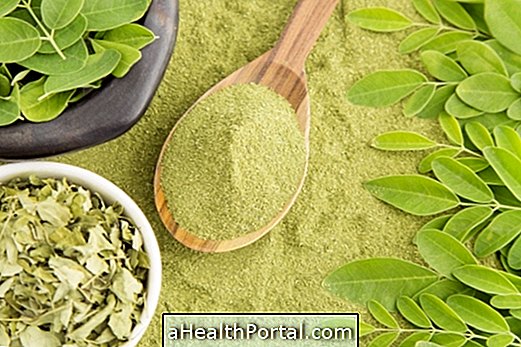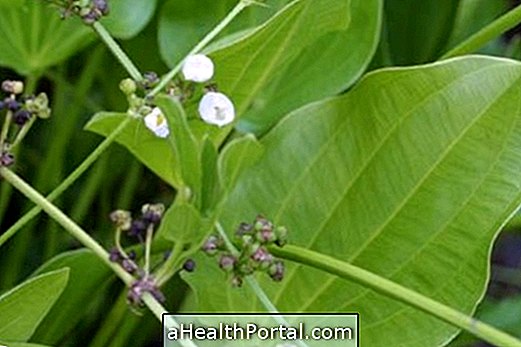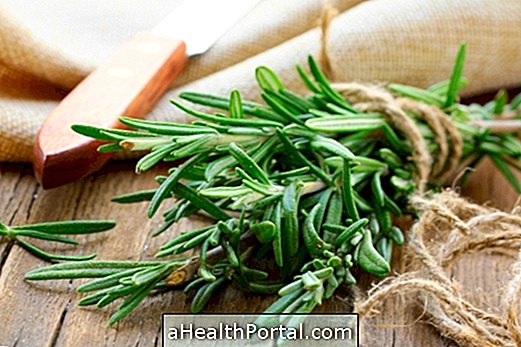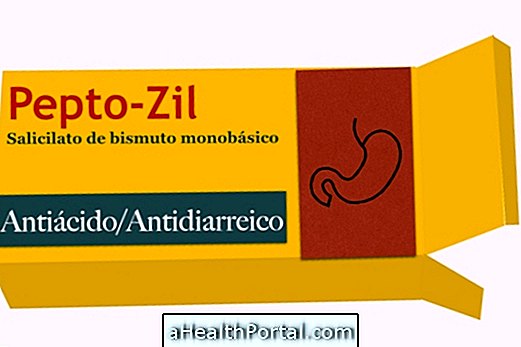The moringa, also called the tree of life or white acacia, is a medicinal plant that has a large amount of vitamins and minerals, such as iron, carotenoids, quercetin, vitamin C, among others, which provide greater antioxidant and anti-inflammatory effect.
This plant can be used to treat some respiratory diseases, reduce anxiety, lose weight, and even control the blood glucose concentration in diabetic people.
The moringa's scientific name is Moringa oleifera and its most commonly used part is the leaves, which can be consumed in the form of tea, capsules or powder, and can be found in natural food stores, internet and drugstores.

Benefits of Moringa
The moringa can be used for several situations, and its main benefits are:
- It increases the respiratory capacity, helping to fight diseases such as asthma;
- Prevents diabetes because it has properties that help regulate oxidative stress, which reduces blood sugar levels, protecting cells;
- Protects the heart as it prevents the absorption of cholesterol in the intestine and formation of fat plaques in the arteries, thereby lowering the risk of cardiovascular diseases;
- Regulates blood pressure, as it improves blood circulation because of its vasodilatory effect;
- Helps in weight loss, because it has fibers and proteins that help increase the sensation of satiety;
- Prevents and combat anemia, since its leaves have a large amount of iron (105 mg per 100 g of leaf), favoring the formation of red blood cells;
- It increases the body's defenses because it consists of substances, with vitamin C, polyphenols and beta-carotene, which stimulate the immune system;
- It has an analgesic and anti-inflammatory effect due to the presence of isothiocyanates, quercetin and chlorogenic acid, which are substances that help to reduce the inflammatory process, relieving symptoms of rheumatism and inflammation of the prostate, for example;
- It protects and hydrates the skin due to the large amount of vitamins of the complex B, C, E and A that has, thus favoring the healing of the skin;
- It improves the health of the digestive system as it prevents and assists in the treatment of stomach ulcers, in addition to helping to fight against constipation due to its large amount of fibers;
- It helps to treat hemorrhoids, since it has vasodilator effect, stimulating the blood circulation;
- It improves vision, since it consists of beta-carotene, which is a precursor component of vitamin A, which, among other functions, is responsible for maintaining the health of vision;
- Helps reduce the effects of menopause as it helps control levels of inflammation and oxidative stress during this time, making the concentration of hormones during menopause stable.
Properties of moringa
The properties of the moringa include antioxidant, anti-inflammatory, analgesic, antidiabetic, vasodilating, anticholinergic, antirheumatic and healing action.

Moringa tea
Moringa tea is the most widely used form of consumption because it is quick and easy to make and can be consumed at any time of the day.
Ingredients
- 250 mL of water;
- 10 g (1 tablespoon) of moringa leaves.
Method of preparation
To make the moringa tea simply add the moringa leaves in boiling water, cover and let stand for about 5 minutes. Then strain and drink at least 2 cups of tea per day.
Other forms of consumption
Although there is still no scientific evidence of the recommended daily dose for the plant to have effects on the body, some studies suggest that about 150-200 mg per day is consumed for benefits.
The daily dose depends on how the plant is consumed, other forms of consumption besides tea:
- Capsules : It is usually indicated the consumption of 1 to 3 capsules per day that must be consumed along with the meals, however the amount of capsules can vary according to the brand of the product, since they can have different concentrations of moringa. Therefore, it is important to consult a herbalist so that you can know the ideal amount of capsules per day.
- Seeds : Moringa seeds can also be consumed, however it is recommended to peel the seeds and consume along with a glass of water, being indicated the consumption of 3 grams per day, which corresponds to 2 to 3 seeds.
- Powder : The powder can be used in several ways, it can be added between ½ and 1 tsp in juices, soups, coffee yogurt and even tea.
Although it already has several proven benefits, the moringa is still in studies, because it is not yet known how long this plant can be consumed without side effects. In addition, it is not yet known what the recommended minimum daily amount that this medicinal plant can be consumed to have health benefits.
Side effects and contraindications
Moringa consumption may result in some side effects such as nausea, vomiting and diarrhea. It is recommended to avoid the consumption of the root and its extracts, as they contain toxic substances that can cause paralysis and may even lead to death.
Moringa ingestion is not recommended for pregnant women and infants, as this medicinal plant may interfere with the production of breast milk. This effect is not yet scientifically proven, as this is important to consult the doctor before consuming the moringa.

























